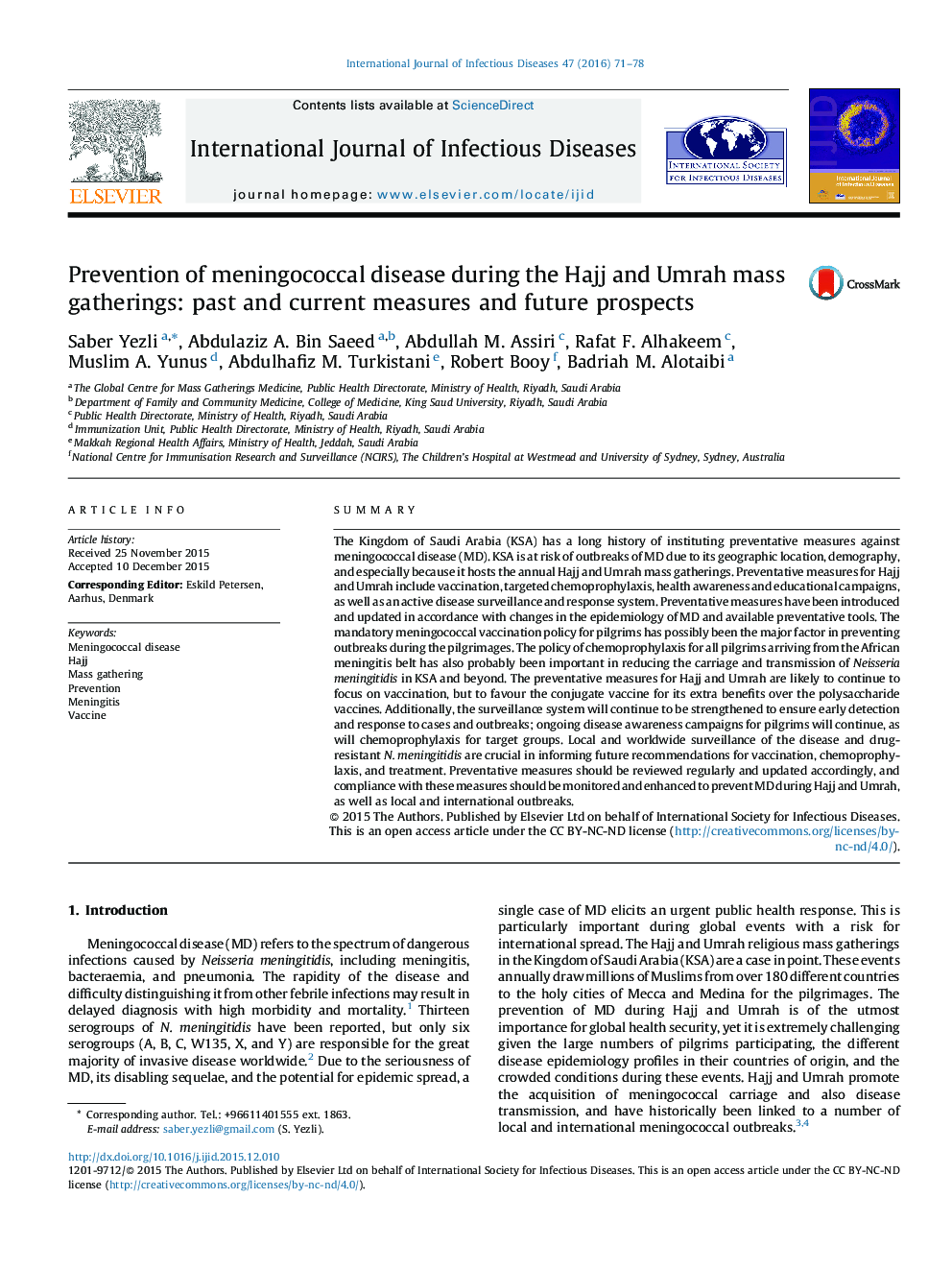| Article ID | Journal | Published Year | Pages | File Type |
|---|---|---|---|---|
| 3361786 | International Journal of Infectious Diseases | 2016 | 8 Pages |
•Saudi Arabia has a long history of instituting preventative measures against meningococcal disease.•Hajj and Umrah measures include vaccination, targeted chemoprophylaxis, health awareness campaigns, and an active disease surveillance and response system.•Measures have been introduced and updated in accordance with changes in the epidemiology of the disease and available preventative tools.•Mandatory vaccination has possibly been the major factor in preventing outbreaks during Hajj and Umrah since 2001.•Chemoprophylaxis for all pilgrims from the African meningitis belt probably helped reduce carriage and transmission.
SummaryThe Kingdom of Saudi Arabia (KSA) has a long history of instituting preventative measures against meningococcal disease (MD). KSA is at risk of outbreaks of MD due to its geographic location, demography, and especially because it hosts the annual Hajj and Umrah mass gatherings. Preventative measures for Hajj and Umrah include vaccination, targeted chemoprophylaxis, health awareness and educational campaigns, as well as an active disease surveillance and response system. Preventative measures have been introduced and updated in accordance with changes in the epidemiology of MD and available preventative tools. The mandatory meningococcal vaccination policy for pilgrims has possibly been the major factor in preventing outbreaks during the pilgrimages. The policy of chemoprophylaxis for all pilgrims arriving from the African meningitis belt has also probably been important in reducing the carriage and transmission of Neisseria meningitidis in KSA and beyond. The preventative measures for Hajj and Umrah are likely to continue to focus on vaccination, but to favour the conjugate vaccine for its extra benefits over the polysaccharide vaccines. Additionally, the surveillance system will continue to be strengthened to ensure early detection and response to cases and outbreaks; ongoing disease awareness campaigns for pilgrims will continue, as will chemoprophylaxis for target groups. Local and worldwide surveillance of the disease and drug-resistant N. meningitidis are crucial in informing future recommendations for vaccination, chemoprophylaxis, and treatment. Preventative measures should be reviewed regularly and updated accordingly, and compliance with these measures should be monitored and enhanced to prevent MD during Hajj and Umrah, as well as local and international outbreaks.
